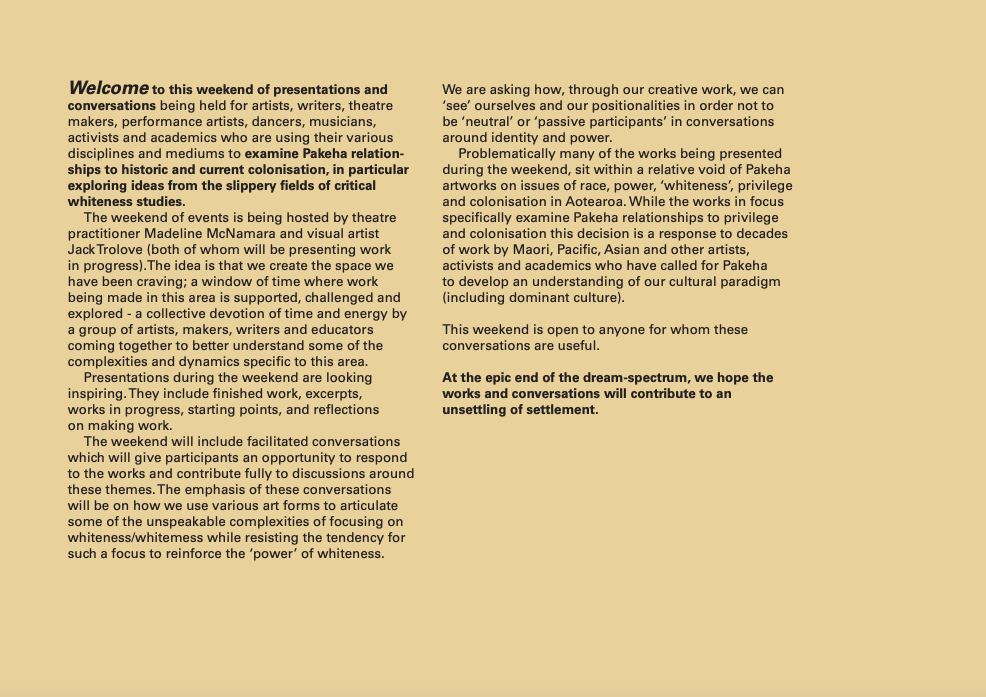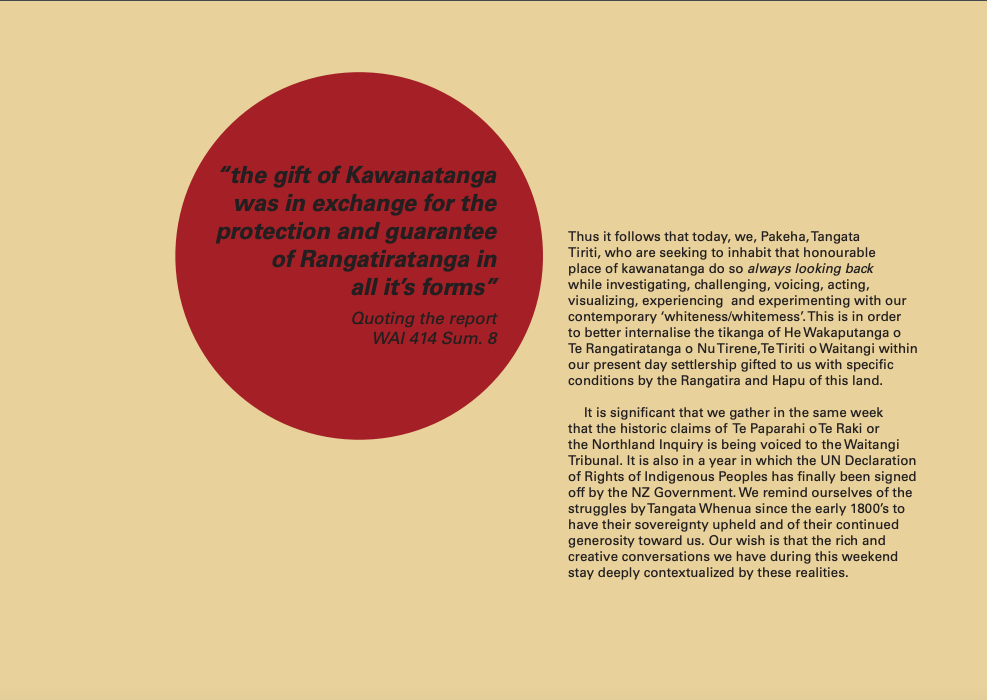Whitemess Hui, National Gathering
May 2010
Wellington
Madeline MacNamara: On the weekend of the 15 and 16 May, Jack Trolove and I hosted a weekend of presentations and conversations for artists, poets, theatre makers, performance artists, dancers, singers, activists and academics who are using their various disciplines and mediums to examine Pākeha relationships to historic and current colonisation, in particular exploring ideas from the slippery fields of critical whiteness studies. The idea was that we create the space we have been craving; a window of time where creative work being made in this area was supported, challenged and explored. The title of the gathering was Whiteness/Whitemess. Creative Disorders and Hope. A ‘critical’ gathering. and was held in the Berhampore School Hall, Whanganui a Tara, Wellington. For the full programme go to http://www.whitemess.blogspot.com.
Throughout the six month build up to the weekend we had asked the presenters to place as much emphasis as possible on framing their contributions along artistic lines. For those who identified as artists this was not a problem but for the Treaty educators, activists, and academics it was more of a challenge, however one that most rose to with some very moving results. Artists were activated, and activists were artist-ised. Artistic activists were strengthened in their resolve.
Jack’s reflections are below. For information about the concept, the artists, speakers and presentations, click through to this hui booklet.



My reflections:
Five months have passed since about 70 artists, makers, singers, writers, activists, educators and performers from all over the country piled into the Berhampore hall on a weekend heaving with rain in May.
The weekend was intense and it still feels hard to reflect on what happened during that time. Im not sure whether its because in part it felt like a blur of tiredness, nervousness, hope, fear and excitement or that there is another reason its hard to recall what happened; like many intense experiences sometimes it seems there is a button in us which refuses to record anything. Things change in archives, maybe its that reoccurring pakeha amnesia.
In any case, what can I recall..
A whole lot of us, finding ways to have creative conversations about stepping up to the responsibilities of our history, of pākeha privellege, of how we remember without dismembering (again).
The strongest feeling I am left with is how good it was to get us all under a roof, to give it a go, to remember these conversations are always volatile but that we can still take care of each other and still have them. That it’s good to share food with each other. The presentations were for the large part inspiring, gutsy, humble and incredible. There was some tricky and problematic stuff too. The conversations were still often hard and frustrating but that’s the nature of working inside our colonial histories.
I loved seeing educators drop their familiar tools and bust out some performance poetry. I loved seeing a staunch activist drop the language familiar to him and say what he had to say via a stand up comedy routine. I loved being reminded that it’s important that we keep our fluency in making as artists because creative work does different work to theory.
For information about the concept, the artists, speakers and presentations, click through to this hui booklet.